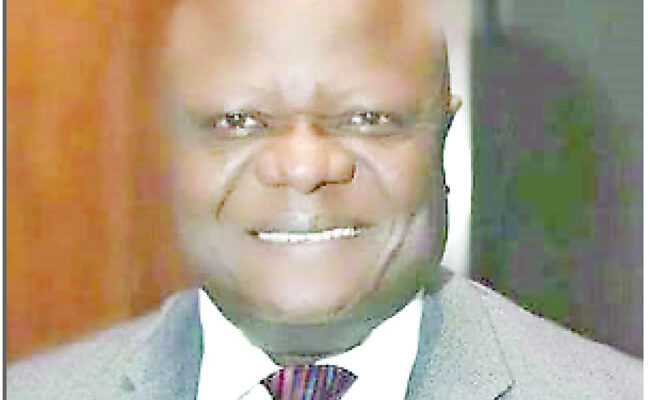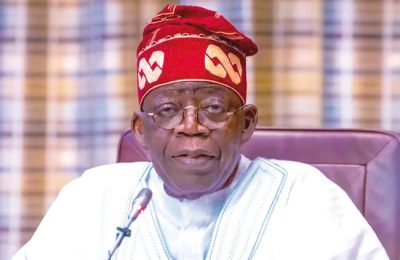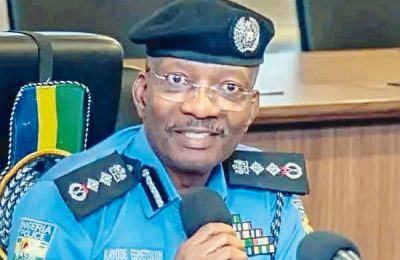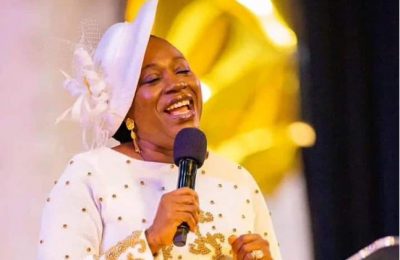Abiodun Gabriel Adeniyi, a communication consultant and an academic, is the Deputy Dean of the School of Postgraduate Studies, Baze University, Abuja. He shared the story of his life with TUNDE ADELEKE.
How would you describe your experience as a university teacher compared to that of the news desk of a leading print medium?

The experiences are similar to the extent that the best is expected of you, having regard to the need to deliver excellence always and dissimilar only in the method of service provision. The classroom expects verbal delivery, mixed with research, community service, mentoring and pastoral care, but the newsroom requires news gathering, writing, fieldwork, which is also involved in teaching though, and occasional verbal explanation, just when you want to provide further explanations for your editors or rewrite men. Both are intellectual, painstaking and rigorous, and they also bother on trust. In the classroom, your employers, parents and society trust you and hence, leave students in your care. In journalism, your employers and the system also trust you to deliver credible reports, because you are a public trust. I have enjoyed both and have never also seen myself as more of one than the other, even though I got to the peak in one-teaching more than I was able to do in journalism; no thanks to a detour to England, for further studies, courtesy of the British Chevening scholarship.
How do you surmount the challenges of lecturing in a contemporary Nigerian tertiary institution?
You have to situate this within the context of the times we are in. In modern times, students are much more epistemic, considering the learning tool in their hands, through the instrumentality of smartphones. You have to be respectful of their basic knowledge, their instincts and exposure and try to build on that, letting them appreciate the limitations of those fast-paced learning tools, compared with the requirement for more in-depth learning, the examination, interpretation and evaluation of purposely prepared texts for the growing of their knowledge base, and for longer-term benefit. It is a contradiction teachers would have to learn to resolve to make an impact on the students, just so they can further appreciate the value you are trying to add to them.

Growing up in a typical African society can be tough and taxing; can you relay your experience?
No doubt, tougher if your parents were at the lower rung of the economic ladder and you have to carefully work your way leveraging parental prayers, your personal efforts and through social caring chains like free tuition in the university, and scholarship opportunities. I doubt if I would have had a university education if I was to pay tuition and if I would have been able to sponsor a Master’s Degree and a PhD in England if not for the British government scholarship. The only thing I contributed to the matrix was not to disappoint them, at the level of performance, always emerging top, or as one of the best, all through. That remained a condition I always met and the funders often found me suitable, from one stage to the other, but all to the Glory of God.
How was life acquiring education?
Education is priceless. It is a sure route to redeem the self, grow your competitive advantage and enhance your confidence to belong. It prepares you for the future and can make you sit among kings and queens if your background is especially poor. It is liberating, fulfilling and joyful. It is also never too late and always a continuous process. You have to keep learning because knowledge is like a deep sea and even heightened by the frenetic changes we are witnessing in a world of innovation, research and creativity. The more you rise in scholarship, the more you have to be updated. The more you also have to be contributory, or else you become jaded and irrelevant. It is not just about bearing big academic titles but equipping yourself to be able to live up to expectations, to justify the honorific.
Where did it all begin?
For my early education, I attended St. Mary’s Primary School, Lokoja, Kogi State, from 1972 to 1978; had my secondary education at Government Secondary School, Agbaja, Kogi State, 1978 to 1983 and School of Basic Studies, Kwara State College of Technology (now Kwara State Polytechnic), Ilorin, 1983 to 1985. I had my first degree from the Ahmadu Bello University (ABU), Zaria, after which I worked at Today Newspapers, Kaduna, as Lagos State correspondent. I later joined The Guardian Newspapers, Lagos, covering various beats in Lagos and Abuja, for more than a decade.
At what point did you go into academics?
I had earlier bagged a Diploma in Journalism at the International Institute of Journalism (IIJ), Abuja, Nigeria. I then won the British Chevening Scholarship in 2003 to study International Communications at the University of Leeds, England (being one of 35 selected candidates out of over 10,000 applicants) and began my PhD research immediately after the Master’s degree programme at the same university. I was a teaching assistant as a PhD student in Leeds. I was awarded the doctorate in Communication Studies in 2008, for my research on Internet and Diasporic Communication: Dispersed Nigerians and the Online Mediation of Distance, Longing and Belonging. The research investigated the intersections between international communication and the construction of identity, the evocation of nationalism, and how transnationalism is played up in the matrix. I used the Nigerian Diaspora as a case. Professors Myria Georgiou-Lead (now of the London School of Economics) and Stephen Lax (of Leeds University Institute of Communication Studies) guided me through the research. My PhD thesis was then one of few African-centred theses published by the University of Leeds, under the joint Etheses Project. The project then ran in conjunction with the universities of Sheffield and York.
Can you take us through your career journey?
I returned to Nigeria in 2009, after a stint at the Oxford Internet Institute, working as a Communications Consultant on the platform of the World Bank Economic Reform and Governance Project (ERGP) at the Bureau of Public Procurement (BPP), Presidency, Abuja. As a consultant, I guided the bureau in the administration of the five-million-dollar media and communication project over four and a half years. The project sought to ingrain the new public procurement reform into the hearts and minds of the public contracting and executing audience, for quality, competence and transparency in the nation’s public expenditure process. On the expiration of the contract, I became lead consultant at Witswords Consults Limited (WCL), Abuja, before joining Baze University as a senior lecturer in Mass Communication, where I later became Head of Department from September 2016 to August 2018. I was returned as HOD in September 2019 and was promoted to Associate Professor after rigorous internal and external assessments, not just for extensive works on the Media of Diaspora and in Strategic Communication, but specifically for redefining how the nascent Nigerian Diaspora is imagined and re-imagined, against the backdrop of changing technologies of communication and how they appropriate these opportunities for relating with origin, with each other and with host community – a delicate triangle of fluid exchange of meanings.
Are you engaged with other institutions?
I have been visiting assistant professor of Communication and Multimedia Design at the American University of Nigeria (AUN), Yola; Adamawa State; a visiting associate professor of research methods for doctoral students at the University of Abuja and an external examiner to many universities, including the National Open University, Abuja, and Pen University, Gombe State. I was promoted to full Professor of Communication in September 2021, and arguably one of the first, if not the first professor of Diasporic Communication in the country. I am an occasional consultant for a range of organisations, including DFID, the World Bank, the European Union (EU), USAID, and the IOM/OIM, among others. I have facilitated training in several ministries, departments and agencies (MDAs), and for private organisations, in the fields of communication, enterprise promotion, efficiency and productivity improvement, within and outside the country. I am sometimes engaged as an individual consultant to senior private and public officials on speech writing, public policy, research, documentation, biography, strategy, issues, perception and impressions handling, or on various knowledge management affairs.
You appear to be into many things.
I am regular at several newspapers, TV and radio stations, commenting on public issues, besides invitations to deliver public lectures, or as a discussant at seminars, workshops and public conferences. Widely published, online and offline, in local and foreign journals, my present research, scholarship and consultancy interests are in the fields of strategic communication, media and governance and media of diasporas. I have written two books, Diasporic Communication in the Digital Age (Published) and From Newsroom to Classroom: Notions of Media Theory and Practice in Africa, while two others are in the offing. As a fellow of the Chartered Institute of Communication and Development, I normally speak as a motivator in different spaces and places and also act as programme moderator, aside from my university responsibility as an orator and Deputy Dean of the School of Postgraduate Studies.
What pranks did you play as a youth?
As a youth, I was largely on the quiet side and I often deployed that as a tool to gain attention. Parents and seniors would rather agitate for me, believing that I would hardly make any strong case for myself and it always paid off. I am not sure if that strategy will work in present times, where people and society have become much more desperate, unfair, greedy, and individualistic.
What would you consider your favourite food?
This has changed over the years, but I learnt to eat the kind of food you will recommend for old people, a long time ago. Such would include beans, wheat flour, boiled unripe plantain, fish, fruits, vegetables and less carbohydrates. I grew up seeing my parents eating them more and learnt how to eat them early until I was told they can be helpful in many regards.
What music do you enjoy listening to?
Incidentally, I like what you may call rebel music, I mean music geared towards social change. I grew up as a fan of Bob Marley and Fela Anikulapo Kuti. I followed many of their lyrics and still have a lot of them in my memory. Much later, I found the early singles of Alexander AboloreAdegbola Akande (9ice) very stimulating, for the excellent intermix of local folklore with modernity, in addition to his rhythmical beats.
How do you unwind?
I play tennis and swim.
READ ALSO FROM NIGERIAN TRIBUNE







